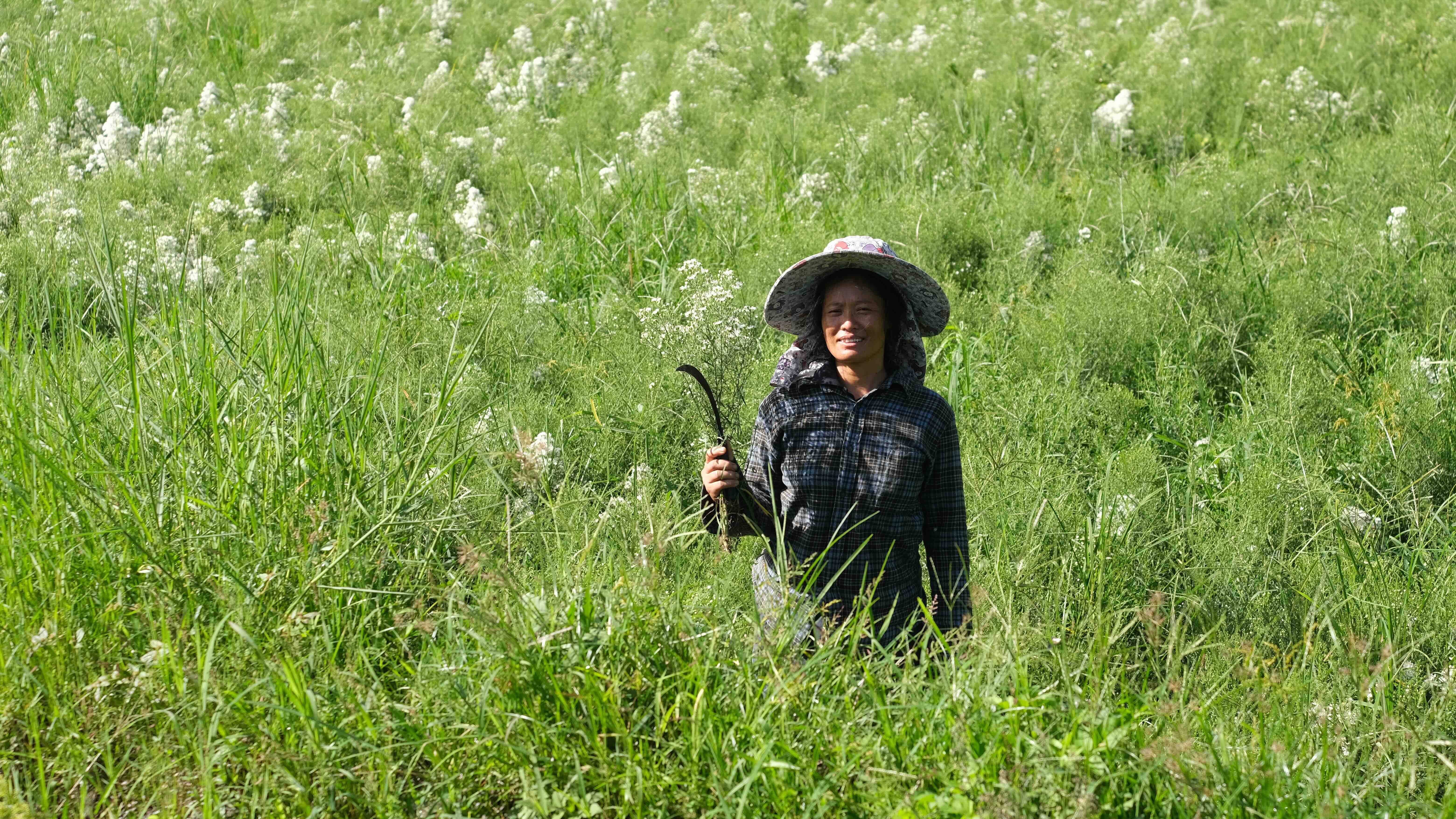
Part of the Indigenous Guna community in Panama, Briseida Iglesias, a fervent advocate for environmental sustainability and cultural heritage, sees great value in living and promoting a sustainable life in her rural village – be it by planting plants and trees for medicines, adopting greener waste disposal, or teaching youth about the cultural and long-term importance of conserving the surrounding forests.
Like many rural women around the world, Briseida blends ancient wisdom and traditions with modern knowledge to lead her community on a path towards greater sustainability that will improve lives and help combat the impacts of climate change.
“Our efforts extend to educating the youth about the importance of seeking the wisdom and knowledge of our ancestors,” said Iglesias, ahead of International Day of Rural Women on 15 October.
“By blending traditional practices with contemporary approaches, we strive to create a balance that ensures the well-being of our community and the environment,” she added.
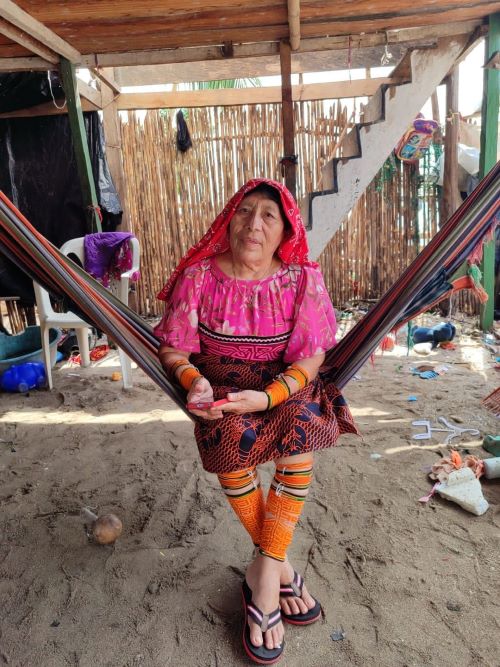
Briseida Iglesias, a fervent advocate for environmental sustainability and cultural heritage ©Briseida Iglesias
Rural women, as agents of change, hold a wealth of knowledge of forest landscapes, and they are using this expertise to play key role in combating climate change.
They are at the forefront of environmental conservation and bring valuable knowledge and practices which demonstrate how we can all build resilience in the fight against a changing climate. Their efforts, wisdom and experience are indispensable in combating climate change, protecting forests and preserving their cultural heritage.
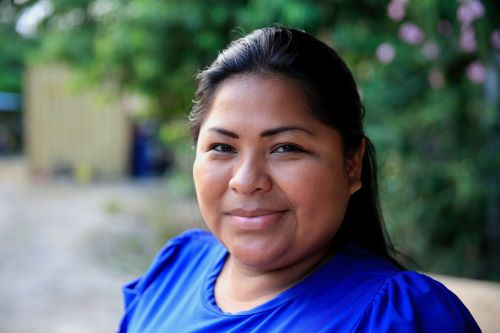
Sara Omi, a leader of the Emberá people of Panama and the Coordinator of Territorial Women Leaders of Mesoamerica ©Tim Lewis, If Not Us Then Who
The work of Sara Omi, a leader of the Emberá people of Panama and the Coordinator of Territorial Women Leaders of Mesoamerica, provides another example of the valuable work Indigenous women play in climate action.
“The women in my organization, both locally and across Panama, are proposing various alternatives to combat the effects of climate change and to recover and preserve our traditional knowledge,” she said.
"For instance, by creating botanical gardens made by women to promote this knowledge …We are working with the concept of the Living Forest, with traditional medicine, food security, agricultural production … which are important tools to maintain the balance and protection of our Mother Earth.”
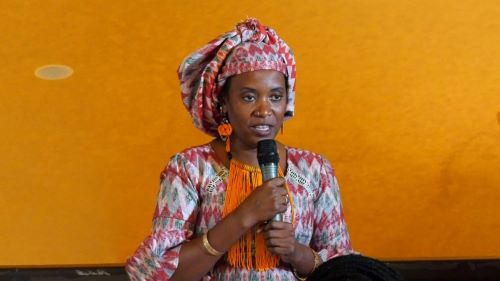
Aissatou Oumarou, a climate activist ©Aissatou Oumarou
Despite their crucial role, rural women, particularly Indigenous women, face a range of compounded hurdles when sustainably managing land, forests and natural resources.
Aissatou Oumarou, a climate activist from Chad and a member of the Mbororo Fulani, knows the challenges too well.
“Indigenous Peoples are so marginalized that they have little or no access to land, and for Indigenous women it's even worse,” she said.
“So, the biggest challenge is access to land, territories and water, as well as support from local and administrative authorities to minimize the impact of concessionaires on Indigenous territories in the forests and agro-industry in the savannahs,” Aissatou added.
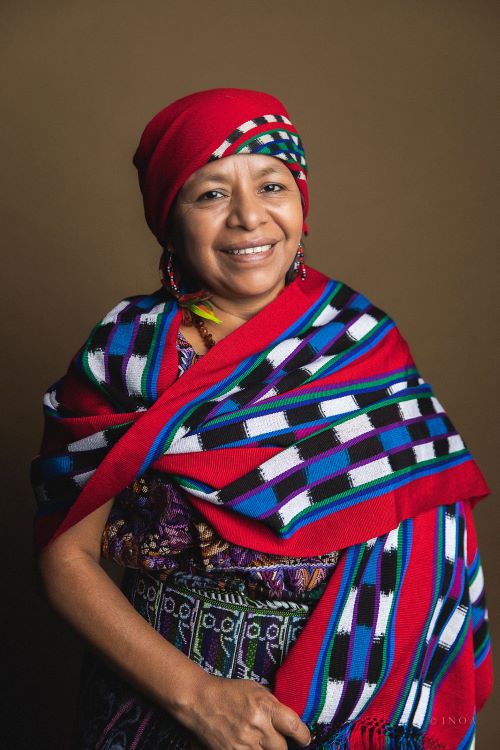
Nana Marina Cruz, a Mayan spiritual guide and cultural advocate ©Manuel Inoa
Nana Marina Cruz, a Mayan spiritual guide and cultural advocate from the Maya Tz'utujil Indigenous Peoples in Guatemala, advocates similar sentiments, noting the key role that world leaders also play in the fight to protect forests and climate change.
"My message to world leaders is a plea for conscience,” she said. “They hold responsibility for authorizing permits to mining and exploitative companies, effectively selling off our precious Mother Earth and its resources.
“If leaders truly embody their roles, they must take meaningful action to serve humanity and protect our environment,” she added. “Pursuing wealth at the expense of our planet's health is not true happiness; it's time to prioritize life and consciousness over profit.”
It is precisely these forest protection efforts that the UN-REDD Programme also strives to undertake, at both national and local levels, in its REDD+ support to countries. Acknowledging the indispensable role Indigenous and local women play in REDD+, giving rural women an equitable voice and providing them a space to inform such support is also a crucial element of UN-REDD’s gender approach as well.
While progress is being made, a wide range of steps are still necessary to ensure the future is one where everyone, across all genders, has the capacity, tools and opportunities, to effectively protect forests and adapt to and combat climate change.
“The protection of our Mother Earth is not only crucial for the wellbeing of Indigenous peoples, but for everyone who inhabits this planet,” said Sara Omi.


